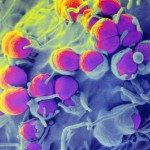Link to Pubmed [PMID] – 12818620
Comp. Immunol. Microbiol. Infect. Dis. 2003 Oct;26(5-6):329-41
In the last century, vaccines have been one of the most powerful tools for preventing infectious diseases. Smallpox has been eradicated and other diseases such as poliomyelitis or measles have been reduced to very low levels in many regions of the world. However, infectious diseases remain the leading cause of death worldwide. Thus, the development of vaccines to prevent diseases for which no vaccine currently exists such as AIDS or malaria as well as the improvement of efficacy and safety of existing vaccines remains a high priority. Achieving such ambitious goals in a near future will certainly require a strong modification of the methods that have been used so far to identify vaccine candidates. In particular, modern vaccinology could strongly benefit of the latest developments of molecular biology and immunology. Here, we will discuss some potential applications of the increasing knowledge of pathogen genomes as well as the immune system for the discovery of new antigenic targets and the development of new strategies of vaccination.

